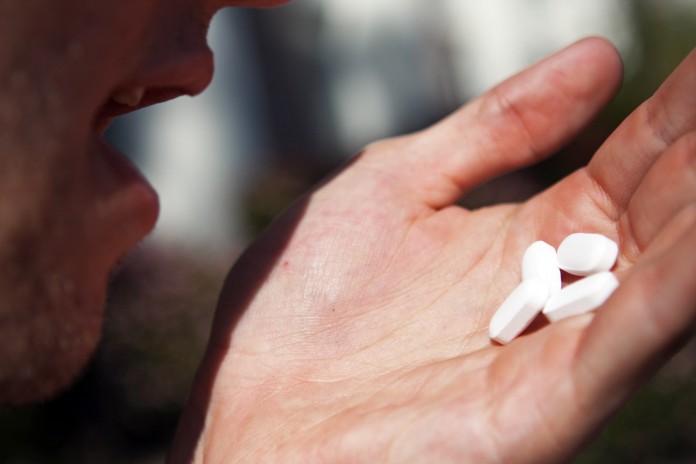Tara Ashlynn Luckner
Recently, a UCSB Public Health Alert was sent to all students regarding the problem of opiate abuse in the area. Prescription drugs such as Vicodin, Percocet, OxyContin and Dilaudid are being dangerously misused as addictive narcotics for pleasure and intoxication. Aside from prescription drugs, the popular demand of heroin has also increased in the community.
The high levels of addiction and abuse of these substances have resulted in a number of UCSB students overdosing and dying in the past couple of months. In response to the issue, the UCSB community is working together to crack down on the matter and spread awareness. Overall, this affair has stimulated various questions and concerns about the accessibility of these substances to students who do not have a valid prescription.
A major issue that is contributing to this problem is that many opiate drugs are popular items sold on the street. Students can have easy access to Vicodin, OxyContin, and heroin by simply paying a street junkie or a close friend who has a prescription for the drugs. An anonymous source commented towards this issue by stating, “Yeah, it’s very easy to buy Vicodin and Oxycontin, because they are popular and common. I know friends who even sell their prescription in order to make a profit. I have no idea how they get a hold of so many pills.”
The danger of being prescribed a large dosage of these narcotics is that it may lead to a problem with addiction, which has the potential of leading to a fatal overdose and death. People begin to develop a tolerance to the effects of drugs and thus, increase the original amount taken in order to experience the same feeling of euphoria that the narcotics initially stimulated. As a result, many patients find it difficult to let go of the overwhelming feeling of relaxation that flows throughout their mind and body when taking the narcotics. Many patients, therefore, end up demanding a refill of their prescription, which in turn, leads them down the path of substance abuse and addiction.
Once people become addicted to these substances, a series of hazardous side effects damage a number of bodily functions. The mixture of acetaminophen and narcotics contained in these substances contribute to liver damage, nausea, breathing problems, comas, confusion, yellowing of the skin and eyes, swelling of the face, lips, and tongue, and other hazardous health problems if misused. Although the side effects are life threatening, people continue to abuse these substances because their addiction is overpowering. Furthermore, people try to avoid the intense withdrawals that are commonly felt after taking these drugs out of their daily routines.
In order to fight back against this issue in the UCSB community, the Student Health Center has taken initiative by limiting the amount of dosages given and by carefully analyzing the medical conditions of their patients. The Director of Student Health, Elizabeth Downing M.D. responds to the effort by stating, “We carefully limit the amount of pain medication prescribed to any patient in order to avoid any type of prescription abuse. The maximum amount of Vicodin that our staff gives to any patient is eight capsules. If students are demanding refills of their prescription, the staff will further investigate the situation in order to make a decision if more pain medication will be helpful for their condition.” Overall, the faculty at Student Health has taken careful precautions when prescribing these medications to students, because of the unhealthy impact of abuse in the community. Their efforts are aimed towards the hope of reducing the persistence of opiate abuse in the UCSB community.
The Alcohol and Drug program offered at UCSB Student Health Services also provides help and education towards the issue of substance abuse. Confidential counseling is also an option for students who are suffering from addiction and for people who are concerned about a friend’s well-being. It is important for students to take advantage of this service in order to gain knowledge about drug issues, help themselves in a drug-related situation, and possibly save the lives of close friends and family members by seeking further information and guidance. The program’s duty is to help students and spread awareness about alcohol and drug abuse throughout the community.
Opiate drug abuse in the UCSB community has contributed to the easy accessibility of street drug purchases and the use of other people’s prescriptions. With the efforts of Student Health and the Alcohol and Drug program, the sustainability of UCSB’s environment has potential for improvement. In addition, students will gain awareness of the unhealthy and risky long term effects from the consumption and abuse of drugs. The campus’s efforts of offering education and support towards the opiate drug issue will continue to aim at providing a safer and more drug-free environment.












Comments are closed.